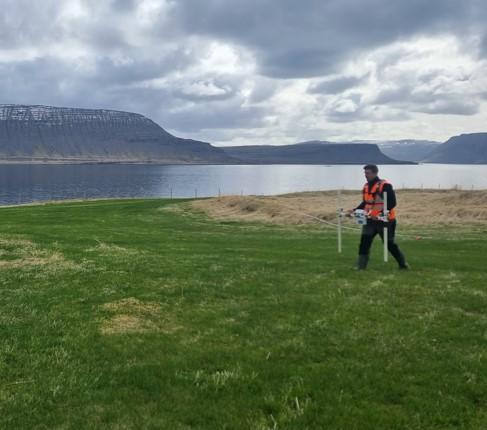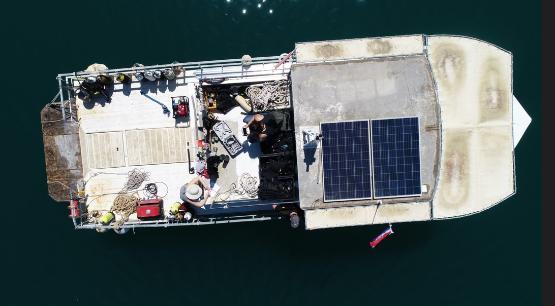Mobile laboratory funding will bridge gap between land and sea
Archaeologists from the University of Bradford have won £720,000 in funding to purchase a suite of state-of-the-art survey equipment that can be deployed across the world.

The award from AHRC (Arts and Humanities Research Council)- will help give academics ‘mobile laboratory’ (MoLab) capability to allow them to investigate previously unexplored landscapes such as wetlands and the inter-tidal zone, which are at risk from human development and the effects of climate change.
Equipment to be purchased includes drones with a variety of sensors for large-scale 3D mapping, portable seismic profiling systems with the ability to map difficult to reach wetland areas down to centimetre level, a remotely operated vehicle to obtain samples and versatile data processing software.

The funding is part of RICHeS (Research Infrastructure for Conservation and Heritage Science), an £80 million national network of conservation and heritage projects and builds on almost £7m worth of grants from the Arts and Humanities Research Council’s Capabilities Collections fund (known as CapCo), which enabled the university to purchase an array of high-tech equipment including a robot dog and drones, some of which were used to create Virtual Bradford, the UK’s first digital twin city.
Dr Cathy Batt, the Principal Investigator and Head of the School of Archaeological & Forensic Sciences (Faculty of Life Sciences) at the University of Bradford, said: “RICHeS will not only transform Bradford's present capacity, but highlights the significance of research into archaeology and heritage nationally.”
Professor Chris Gaffney, Professor of Archaeological Science at the University of Bradford, said: “This award is fantastic news, building on the long-term success in archaeological prospection at Bradford. It reflects our work on iconic landscapes such as Stonehenge and the Mesolithic environment beneath the North Sea. We are delighted that this award will stimulate and support research in new areas, particularly by students and early career researchers.”
About the funding
‘From Land to Sea – A facility for prospection, landscapes and people’ is one of 30 projects to receive funding from RICHeS (Research Infrastructure for Conservation and Heritage Science), an £80 million national network of conservation and heritage projects which aim to secure collaboration at national and international level.
RICHeS is part of UK Research and Innovation’s (UKRI) £481m investment into a number of research and innovation infrastructure projects to maintain the UK’s position as a research and innovation superpower.
The ‘From Land to Sea’ facility, based at the University of Bradford, aims to reduce the artificial divide that exists in landscape studies between land and sea which affects understanding of historic landscapes. It will underpin a step-change in understanding past landscapes’.
It will combine new technology and expertise and use easily transportable equipment in a wide range of environments, both in the UK and internationally. It will let researchers survey on land, in shallow water and near-coastal areas.
The facility aims to offer flexible and portable technologies which will allow researchers to examine and understand landscapes in terrestrial, wetland and marine environments. Users of the university’s facility will be able to quickly react to changing conditions driven by factors including infrastructure development or climate change.
It looks to help transform the ability of humanities researchers to answer questions about human life, culture and society on sea or land. The project will also promote engagement with broader society and impacted communities.
The project has been supported by a host of national and international institutions including the Maritime Archaeology Trust and universities in Japan, USA, Croatia and Poland.
The University of Bradford’s Faculty of Life Sciences now has the largest submerged landscapes research group in the world and is one of the few places specialising in what is an emerging academic discipline.
